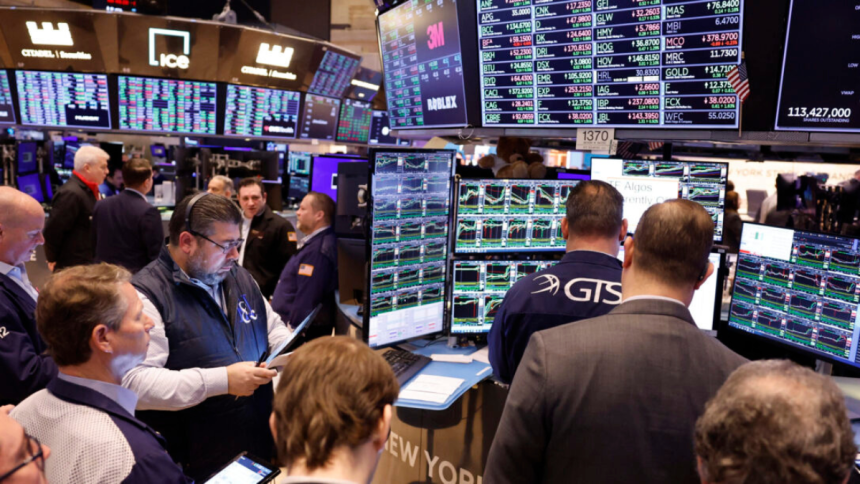The fast-talking world of Wall Street is getting an upgrade—not with louder voices or flashier suits, but with quieter hires that don’t always show up on trading floors. While headlines keep flashing numbers, the real shift is happening behind the scenes, where financial firms are hiring fewer traditional analysts and a lot more AI engineers. It’s not about robots taking over desks. It’s about speed, accuracy, and decisions made faster than a spreadsheet can load. The landscape is changing, and here’s how that shift is playing out.
AI Is Now the Sharpest Mind in the Room
Wall Street was once built on instinct—those gut decisions made by sharp-eyed analysts staring at rows of numbers. That’s still part of the game, but it’s not enough anymore. Firms are bringing in machine learning engineers who can build models that don’t just look at trends—they learn from them. With the right training, AI can scan decades of market behavior and pick up on patterns that humans would miss completely. It’s not about replacing insight. It’s about giving human insight a supercharged boost that works 24/7 without a coffee break.
The Analyst Role Isn’t Dead—It’s Just Not the Same Job Anymore
Ten years ago, a fresh grad with a business degree and some Excel skills could break into Wall Street. Today, that same resume barely stands out. Companies are hiring data experts who know how to work with unstructured data and write code, not just write reports. Job postings mention Python more than PowerPoint. In meetings where strategy decisions are made, it’s not just the finance crowd talking anymore—it’s the tech-minded hires running simulations and tweaking algorithms. And subscribing to a technology blog or two focused on AI is perfect to stay in the loop about how fast these changes are rolling through the industry.
AI Doesn’t Just Speed Things Up—It Changes What’s Possible
There’s a difference between faster and smarter. AI does both. It doesn’t just make an analyst’s work go quicker—it rewrites the entire playbook. Instead of spending hours pulling data, professionals can now ask an AI tool for predictions based on multiple variables, and get results in seconds. That frees up time to focus on strategy, not spreadsheets. And firms love that. It means leaner teams, higher output, and fewer chances of missing something important. One well-built AI model can now do the heavy lifting of an entire research department.
AI Models Spot What Traditional Formulas Miss
Old-school finance runs on structured formulas and economic theory. But the markets aren’t always logical—and traditional models often get blindsided. AI models don’t need neat equations. They thrive in messy, real-world data. They pull insights from social media chatter, global shipping delays, weather changes—anything that might move the needle. AI in E-commerce already uses this approach to drive behavior, and Wall Street is adapting fast. It’s no longer about having the most experienced analyst in the room. It’s about having the smartest algorithm watching the room, alert and ready when something shifts.
Hiring Is Getting a Tech Industry Makeover
Financial firms used to chase MBAs and CFA holders. Now, they’re offering high salaries to machine learning engineers and recruiting straight from top tech companies. New hires are just as likely to have experience in app development as they are in hedge funds. And they’re not tucked away in IT—they’re side by side with portfolio managers, providing real-time data analysis that drives decisions. It’s a cultural shift that’s happening without much noise, but it’s changing who gets hired, who gets promoted, and how entire teams are structured.
Human Strategy Still Matters—But It Has to Work with AI
Even with all this automation, firms still need people to ask the right questions, weigh risk, and make final calls. But the humans who thrive now are the ones who can collaborate with machines, not compete against them. They know how to interpret AI output, tweak models when something’s off, and steer decision-making with context a computer can’t fully grasp. The new strategist isn’t just financially savvy—they’re tech fluent. That combination is becoming the most valuable skill set on the street.
In the world of finance, change doesn’t always announce itself. But it’s here. Wall Street is building faster, leaner, more adaptive teams—and AI is at the heart of it all. It’s not about replacing humans. It’s about empowering them with tools that work faster, learn faster, and make smarter possible. The future of finance isn’t robotic. It’s just better wired.
Lynn Martelli is an editor at Readability. She received her MFA in Creative Writing from Antioch University and has worked as an editor for over 10 years. Lynn has edited a wide variety of books, including fiction, non-fiction, memoirs, and more. In her free time, Lynn enjoys reading, writing, and spending time with her family and friends.















